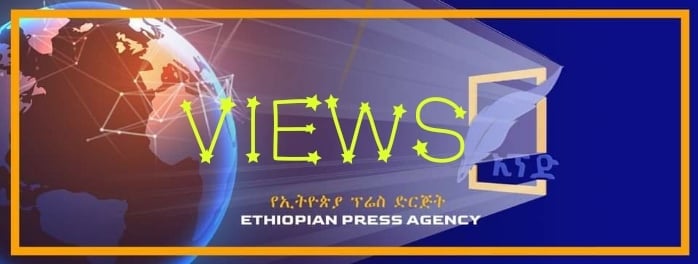
The growth in the number of NGOs, their outreach and resources in recent years is unprecedented. The rise in the number of NGOs is related to the massive injection of foreign donations and grants into Ethiopia. Most of the assistance came into the country due to its peculiar political and economic situation.
Ethiopia has been through several violent conflicts during the past few years. It has been transitioning from the dictatorship of the TPLF to a democratic process. The political and economic environment in the country has been in the process of change.
The political evolution has been filled with socioeconomic crises. In this situation, there has been an increase in the number of NGOs that came into the country to help with expertise and money. It is during this period that the country has suffered from natural disasters, pests, desert locust infestations, floods. Coupled with deterioration in the quality of environment and the need to have a sustainable balance between population growths and depleting natural resources, these disasters focused the attention of the international development community towards Ethiopia like never before. These political, economic and environmental issues have resulted in foreign assistance coming into the country, with a growing number of NGOs.
They also created awareness and community participation to achieve much needed development goals. They have helped in improving health services, sanitation, and sewage-disposal and in providing educational facilities. Most of these NOGs have been delivering selected services only with the approval of the terrorist TPLF.
The terrorist withdraws itself from providing essential social services such as education, health and sanitation and a private sector that is selfishly focused on profit maximization leave a lot of room for the NGO sector. The civil society or the non-profit NGO has operated in the social development sphere throughout the developing world. What exactly constitutes the NGO sector is an enigmatic problem due to the difficulty to categorize what civil society is and what it is not. Since they are neither part of the state nor operate as private businesses, it is difficult to make a comprehensive analysis of what has been undertaken by the NOGs in Ethiopia so far. Studies indicate that the available data on NGOs are sketchy, implying shoddy operations due to the indirect influence and attachments with the terrorist group.
Many academics feel NGOs are actually part of the neo-liberal agenda to roll back the state, open international borders for globalized commerce, deregulate labor markets to make hiring and firing easy and push all service provision into the hands of the private sector. In such a situation, the NGO sector no longer remains distinct from the private sector. It has become hegemonic and dominant in its operations. According to R. Saigol, certain highly funded consortiums of NGOs dominate the civil society scene.
Whereas civil society plays an important role in pushing society towards a progressive path, it is no longer just an informal or incidental component of society. It, indeed, is another word for highly bureaucratized institution, with a lot of resources, suffering from all the ills that bureaucracy brings such as inertia, mismanagement and corruption. Some of the NGOs in Ethiopia are no exception to this.
Baffled NGOs: Knowing the exact size and breadth of the operation of the NGO sector in Ethiopia is difficult to figure out. If money is any guide, charitable NGOs, which live on the generosity of local donors, receive millions of dollars annually. They also receive fund from the international charities, the governments of other countries and multilateral donors. The availability of large amounts of money creates major issues of both capacity and corruption within NGOs, even when they genuinely want to carry out development activities. They also receive large amount of funds to provide relief to the victims of natural disasters. Huge disasters call for quick disbursal and management of vast resources which the NGOs are not prepared for.
The NGOs find coordination and management of resources earmarked for affected persons a tough task. In this situation the NGOs find themselves baffled, confused and puzzled to the extent of mismanaging their services. They would find many errors in computation of prices and other procedural irregularities, simply because they do not have enough skilled and motivated staff. Studies indicate that the problem gets even more acute with smaller and less experienced NGOs.
When an external donor provides a big sum of money to a small NGO working in a village, it leaves that NGO confused. Having never before handled the kind of money it has at its disposal, the NGO cannot put in place financial systems ready to handle huge cash flows. It also cannot employ skilled staff to achieve targets set by external donors which are to be achieved in a short span of time.
The operation of small NGOs inevitably results in wastage, poor record-keeping, ill-executed projects and even pilferage, theft and corruption. In many cases, external donors had to blacklist NGOs they had been working with for years. Relief goods provided by international NGOs (INGOs) through local NGOs for victims of natural disasters ended up in the market for sale. INGOs come into agreement with governments that all products they bring into the country from abroad for distribution and for use by NGOs will not be subject to customs duties. Studies indicate that such duty waivers make these products attractive for private buyers.
They provide a perfect incentive for NGO employees to sell them in the market and pocket the money. Some local NGOs sometimes do not have the institutional capacity to spend even a fraction of the funds they receive.
The INGOs and donor organizations force their own staff to ignore the poor operations of local NGOs. The level of institutional arrangements between local NGOs and their donors are too weak to channel big amounts of money. When NGOs fail to have any real interest in the project, the government counterparts could not perform as planned. They may be forced to return money earmarked for the project back to the donors because the money could not be used. Of course, such systemic weaknesses cannot be wholly ascribed to corrupt practices by NGOs or the political agendas of the donors. But their impact is immediately felt in the form of missing development work that otherwise should have been carried out.
Press releases announcing international aid for development projects over a given period could be seen as a way to disburse the money in a “transparent” manner. But, those projects could be cancelled by donors without notification. This leaves the recipient country without any projects that help build infrastructure or schools and hospitals. This is where local NGOs are not as effective as they could be. Thus, the sustainability of NGO-driven projects tends to become another major problem. Only a few projects received sustainable external donor support over a longtime frame. Local beneficiaries of projects could not do anything to maintain them, as they are too poor to keep them operational without any funding.
Confusing roles: Studies indicate that continuity of investment by external donors and active citizen participation can ensure sustainability of development projects. Mismanagement of projects and bureaucratic operations of NGOs are not sustainable, resulting in inefficiency and inertia. Many donors and their local partners sometimes incorrectly overemphasize institutionalization over effective service delivery.
Some of them actually want NGOs to “replicate” corporate administrative structures so as to effectively take care of cash flows and other human resource problems. Such bureaucratization and corporatization of NGOs has “entrenched” new bureaucracies which are cumbersome and inefficient. In this respect they play confusing roles, duplicating the activities of the government.
Researches explain how NGOs engaged in service delivery are taking up the role of the government and thus encouraging and helping it to “abdicate” its responsibility towards its citizens. The NGOs playing a role in delivering services such as health and education confuse the distinction between them and the government. They voice the concerns of citizens, which is the function of civil society. But, they take care of citizens, which is the responsibility of the government. An active civil society and a responsible government are both features of a democratic and forward-looking society. However, when NGOs are seen to possess more resources to deliver services while at the same time still claiming to be a part of civil society, they are “mixing” the two factors and produce outcomes which are not always helpful. Consequently, the government itself starts relying upon them to carry out its own basic functions and services.
Conclusion: The idea that NGOs constitute a middle space between the public sector and the private sector is problematic. It is thought that they would engage in profiteering through applying private corporate methods and the corruption of the public one. In reality, NGOs have “both” features, especially those under the influence of the TPLF operatives. They have a tendency to go after corporate salaries and perks as well as the tendency towards less transparency and accountability than is desirable. However, some honest NGOs have successfully campaigned for human rights and environmental issues to be part of the development program. A few of these honest NGOs have also been instrumental in bringing into the limelight issues such as gender-based and other segregation and discrimination. These NGOs have created public awareness on issues pertaining to health, education and sanitation.
They have demanded for transparency and rule of law in the implementation of projects they have financed. Some of these honest NGOs encouraged allocation and disbursal of funds to serve the poor people. When it came to voicing the interests of citizens they financed studies on the needs of the people. They fill gaps in raising awareness on issues important to a functioning, accountable and democratic system of governance. However, some NGOs have been found to be corrupt, irresponsible, negligent and unreliable in serving the people who are in need of humanitarian assistance. Under the guise of providing material assistance to the poor people of Ethiopia, they have interfered or engaged in the politics of the country without any censorious moral attitude. There is, therefore, a need to take corrective measure on the role NGOs that divert from their declared objective of serving Ethiopians. The negative role of some of these NGOs has to be arrested in time before it is too late.
Editor’s Note: The views entertained in this article do not necessarily reflect the stance of The Ethiopian Herald
BY GETACHEW MINAS
The Ethiopian Herald 9 September 2021



